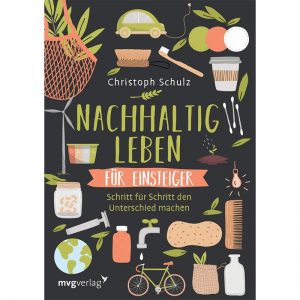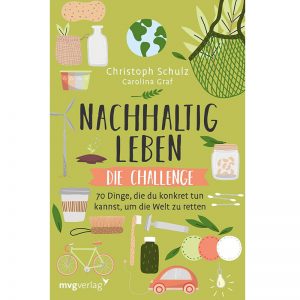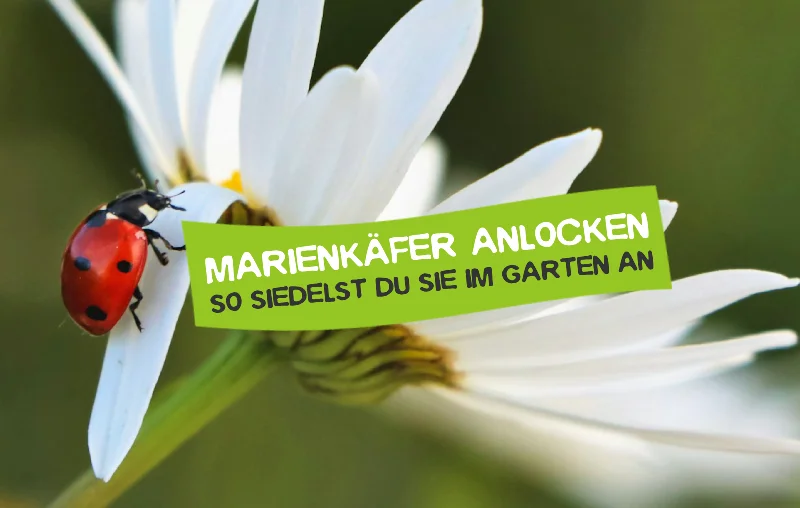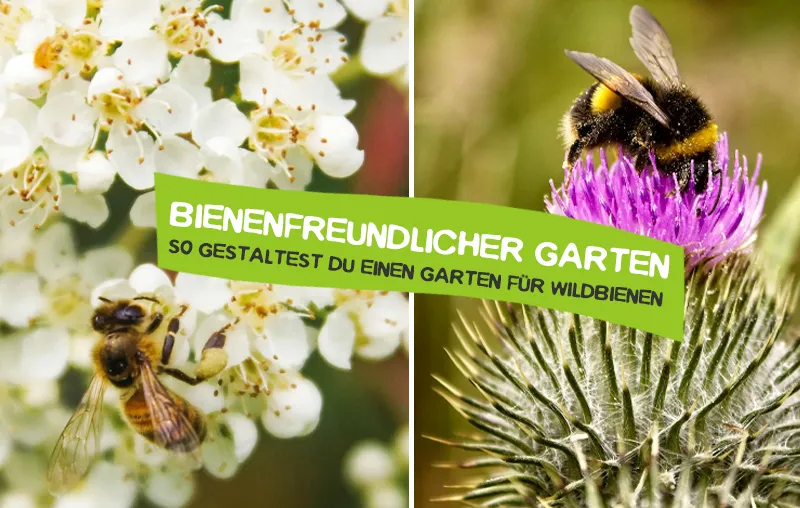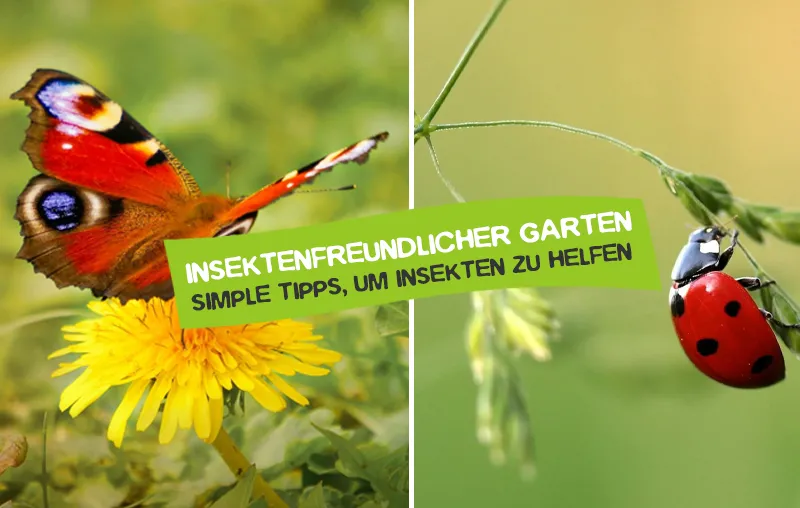Do you want to spend the winter sustainably and do something good for the environment? Then you've come to the right place! Whether it's your clothes, heating, travel or Christmas dinner - there are so many simple ways to be more environmentally conscious, especially in the frosty months of December, January and February.
In this article, I will therefore give you some valuable practical tips on how to get through the winter sustainably. Simply integrate them gradually into your everyday life to make a real difference. Let's go!
1. energy-saving heating and ventilation
Heat energy is needed to keep your own four walls pleasantly warm in winter. So try, if possible energy-efficient heating - ideally with a Geothermal heat pumpinstead of gas or oil.
The The Federal Environment Agency also recommendsfor climate protection, air pollution control and ecological reasons to refrain from using wood to heat the house.
Either way, the windows should be closed for most of the day. Instead of tilting them, you can leave them open for a few minutes in the morning and evening. Shock ventilationto save energy and thus also save money sustainably. An important tip for more sustainability in winter.
2. choose sustainable winter clothing made from natural materials
The Down coat for women or the winter jacket for men are winter fashion classics. But often it is not so easyFinding clothing that keeps you warm and is natural and environmentally friendly at the same time.
If possible, try to Sustainability seals such as Fairtrade, Green Button, Global Organic Textile Standard (GOTS) and PETA - Approved Vegan in order to Recognize sustainable fashion more quickly. And perhaps the Second-hand purchase a suitable alternative for you.
3. buy food seasonally

Even in winter, many foods are Imported from abroad. To avoid long transportation routes, climate-damaging CO2 emissions and irrigation-intensive cultivation in arid regions of the world, you should therefore opt for foodstuffs that are in season in winter have
White cabbage, kale, black cabbage and Brussels sprouts as well as Beets, hazelnuts, walnuts and Beet for example.
4. use green electricity Save electricity
Not only the heating, but also the Christmas lighting and the increased Light switched on in the dark time of the year consume a lot of energy and drive up electricity bills.
So switch to green electricity and consciously save electricitywherever possible. For example, rely on energy-efficient and long-lasting LED fairy lights, use a Timer and switch off the lights in your house or apartmentif you don't need it.
5. give a natural and sustainable gift
Both the one or other gift itself, but definitely the classic wrapping paper, will be often only used oncebefore it ends up in the bin.
For a sustainable winter and sustainable Christmas therefore also includes environmentally friendly gift packaging - Newspaper or reusable cloth towels for example! You can then decorate them with a few natural materials (e.g. fir branches and walnut shells).
Of course, you should also be creative and sustainable Gift ideas be. How about, for example, a Solar canning jar or a Stainless steel lunch box?
Prefer something different? For further inspiration I have here further links for you:
6. veganize typical winter dishes
Winter traditions, such as the Christmas roast or Fondue traditionally contain ingredients that involve animal suffering, Factory Farminghigh CO2 emissions and a massive waste of resources.
But fortunately it is also possible without animal ingredients! Here are a few links to vegan winter recipesthat you absolutely have to try out:
- Chestnut and nut roast with porcini mushroom sauce
- Vegan bread dumplings with parsley and nutmeg
- Mushroom Wellington (vegan roast)
- Vegan gumbo style stew
7. use natural care products for the winter
Whether Lip balm, moisturizing face creams, hand creams, body lotions, hair masks or Nail oilIn the cold and frosty season, many of us resort to special care products. However, they often contain chemicals or microplastics - ingredients that are neither healthy nor environmentally friendly.
Prefer therefore Care products and natural cosmetics with organic ingredientsthat are gentler on your skin and natural ecosystems. To avoid waste, you can also make some body care products yourself or buy them in refill packs.
8. use public transportation and form carpools
Due to the winter cold, many people prefer the car to the bike. The CO2 Emissions, the Traffic jams and the Air Pollution can be prevented in many cases by switching to public transportation.
If you dependent on the car you can also form efficient carpools - and, for example, save your Making your commute more sustainable.
By the way: To extend the range of Electric cars in winter there are a few tips and tricks that you can implement. I present them to you in the linked article.
9. spread grit and gravel when slippery
Aggressive road salt harms trees, animals, buildings, bodies of water and vehicles, among other things. With grit, gravel or even lava granules (look out for the "Blue Angel" eco-label), natural alternatives are available.1
Also clear sidewalks and driveways as quickly as possible with a shovel and broom to remove snow so that it doesn't get slippery in the first place.
10. boil tea in bulk and avoid waste

Tea bags often contain plastic and produce unnecessary packaging waste. By buying your warming tea loose instead and packing it with a reusable Stainless steel tea filter brewing, fortunately there is no waste at all.
Tip: Even more Zero Waste Tips can be found in the linked blog article!
11. use thermos flasks & cups instead of disposable cups
If you want to spend your winter sustainably, I have one more tip for you!
Disposable cup for Coffee, tea or mulled wine produce an extreme amount of waste! By using reusable thermos flasks and mugs, you can save so much waste at home and on the go. Saving plastic waste and keep your hot drinks warm.
Feel free to take a cup with you and have them filled at the Christmas market, for example.
12. practicing environmentally friendly winter sports
The Unfortunately, skiing has serious environmental consequences. The leveled ground increases the risk of avalanches, landslides and flooding, the use of snow cannons dries out the mountain regions, wild animals are affected and, last but not least, skiing is also harmful to the climate.2
Instead, opt for environmentally friendly alternatives such as the Cross-country skiing, Snowshoeing or Ice skating on frozen lakes. Or try your hand at winter sports such as Curling and Curling.
13. use hot water bottles instead of electric heating pads
Are you really cold? Then please refrain from using electric heating pads, as they real energy guzzlers are. Hot water bottles are much better suited to sustainable winter!
After all, they don't need electricity and keep you just as warm. A really simple one, energy-efficient solutionto provide cozy warmth on cold winter days.
14. try ice bathing
Whether cold shower or ice bathing in the lake - the ice-cold water strengthens your immune system and stimulates your circulation - and that without energy-intensive wellness offers to use. So you conserve natural resources and connect directly with nature.
15. helping animals to hibernate

Many animals have it difficult to find food and shelter in winter to find. With these simple measures you can Promote biodiversity and help them survive the cold season:
- Leave piles of leaves lying around (for hedgehogs and insects)
- Create insect hotels, open ground and sandy areas (for insects)
- Create feeding areas (e.g. for squirrels and birds)
- Prune shrubs and bushes only in spring (for insects and birds)
- Leave plant stems standing and deadwood lying around (for birds and insects)
As a general rule, you should use native plants in your garden that provide food for birds, squirrels and other garden animals in winter. For example Black elderberry, barberry, rowan, cornelian cherry or Rock pear.
16. make your own winter decorations from natural materials
You no longer need to buy energy-intensive plastic and metal winter decorations and instead simply rely on Twigs, pine cones, leaves, wood, paper or Dried flowers set. The Christmas or winter decorations are then not only sustainable, but also also gives your home a natural look.
17. covering car windows instead of energy-intensive defrosting
What could be more annoying than scraping the iced-up windows early in the morning or defrosting with chemical de-icer sprays and the parking heater turned up? With the help of a Windshield cover you can prevent icing and save time, nerves, energy and chemicals.
Otherwise, the classic Ice scraper in combination with a Hand broom definitely the most environmentally friendly measure to regain a clear view.
Sustainable winter, made easy!
Even in winter to act sustainablyis really not difficult. Even with simple changes, from saving energy to eco-friendly Christmas decorations, you can make a big difference. Every measure counts, no matter how small. It is important that you proceed step by step and always see the changeover as a process. 🙂
"No snowflake in an avalanche ever feels responsible."
Stanislaw Jerzy Lec (more at Winter Quotes)
I think this quote underlines once again that each and every one of us has to make a contribution in order for something to really change. I hope that it inspires you to continue to make a difference on cold winter days. consciously reduce our ecological footprint.
Do you have any questions or suggestions? And what other tips can you think of? Feel free to write me a comment under this article.
Stay sustainable,

PS: Das nächste Frühjahr kommt bestimmt! Schau dir also als Nächstes auch noch unbedingt meine besten Tipps für einen nachhaltigen Frühling an, um auf die Jahreszeit vorbereitet zu sein, in der die Natur erwacht.
References:
- Federal Environment Agency: Gritting agents - Environmentally friendly against slippery roads without salt (as of 07.07.2023), available at https://www.umweltbundesamt.de/umwelttipps-fuer-den-alltag/haushalt-wohnen/streumittel-streusalz. [23.10.2024]. ↩︎
- WWF Germany: Skiing: Winter sports with consequences (as of 04.10.2023), available at https://www.wwf.de/aktiv-werden/tipps-fuer-den-alltag/umweltfreundlich-reisen/skifahren-wintersport-mit-folgen. [23.10.2024]. ↩︎


